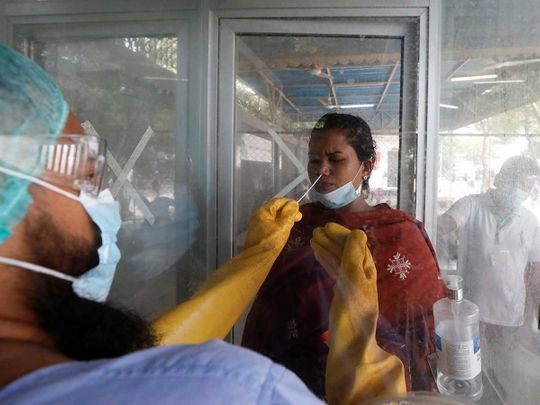
Islamabad: Increased political activities in Pakistan, opposition rallies in different cities particularly in the Gilgit-Baltistan region, and the lax attitude of the people, have resulted in a sharp spike in coronavirus cases.
The latest victim of the coronavirus infection is Captain (R) Muhammad Safdar, husband of Pakistan Muslim League-Nawaz (PML-N) Vice-President Maryam Nawaz. Safdar, who tested positive on Monday, was in Gilgit-Baltistan to campaign for the PML-N for the upcoming elections in the region. He has now returned to Lahore and decided to self-isolate for two weeks. Meanwhile, Pakistan Peoples Party (PPP) leader Qamar Zaman Kaira also tested positive for coronavirus.
Massive political rallies amid the second COVID-19 wave
Pakistan is currently battling the second wave of coronavirus which infected more than 1,600 people and took nine lives on November 8. At the same time, the political activities in the country have intensified despite the health emergency which has been described by experts as “alarming situation.”
The Gilgit-Baltistan region, which reported fewer cases as compared to the other parts of the country during March-August period, is now witnessing an unprecedented increase in coronavirus positivity rate that has climbed to 15.38 per cent — the third-highest in the country.
Karachi and Quetta where huge number of people ventured out to attend rallies are also among the major high-risk COVID-19 cities. Meanwhile, the 11-party anti-government alliance, Pakistan Democratic Movement (PDM), has announced to hold more rallies in Peshawar on November 22, Multan on November 30 and Lahore on December 13 after Gujranwala, Karachi and Quetta demonstrations.
Positivity ratio increasing
On Monday, the National Command and Operation Centre officials sounded alarm bells and said that the COVID-19 positivity ratio is “rapidly increasing in major cities”, with the rate exceeding 15 per cent in at least three cities across the country. “The overall nationwide positivity ratio is 4.5 per cent” the statement said.
Multan: 15.97%
Gilgit: 15.38%
Muzaffarabad: 14.12%
Mirpur: 11.11%
Peshawar: 9.69%
Quetta: 8.03%
Islamabad: 7.48%
Karachi: 7.12%
Lahore: 5.37%
Rawalpindi: 4.63%
Earlier, the NCOC decided to fine those not wearing masks Rs100 to 500 and put restrictions on social gatherings and ceremonies.
Micro smart lockdowns
Currently, at least 4,136 “micro smart lockdowns” are in place across the country. The testing, tracing and quarantine strategy is being used to effectively control and prevent the disease. The recent health guidelines are expected to remain in force till January 31, 2021.
At least 2,811 oxygenated beds have been added to boost the capacity of hospitals while over 13,000 oxygen cylinders have been given to the provinces and federating units.
The NCOC forum appreciated the efforts of the provinces in taking prompt and necessary measures in line with health and safety guidelines.








